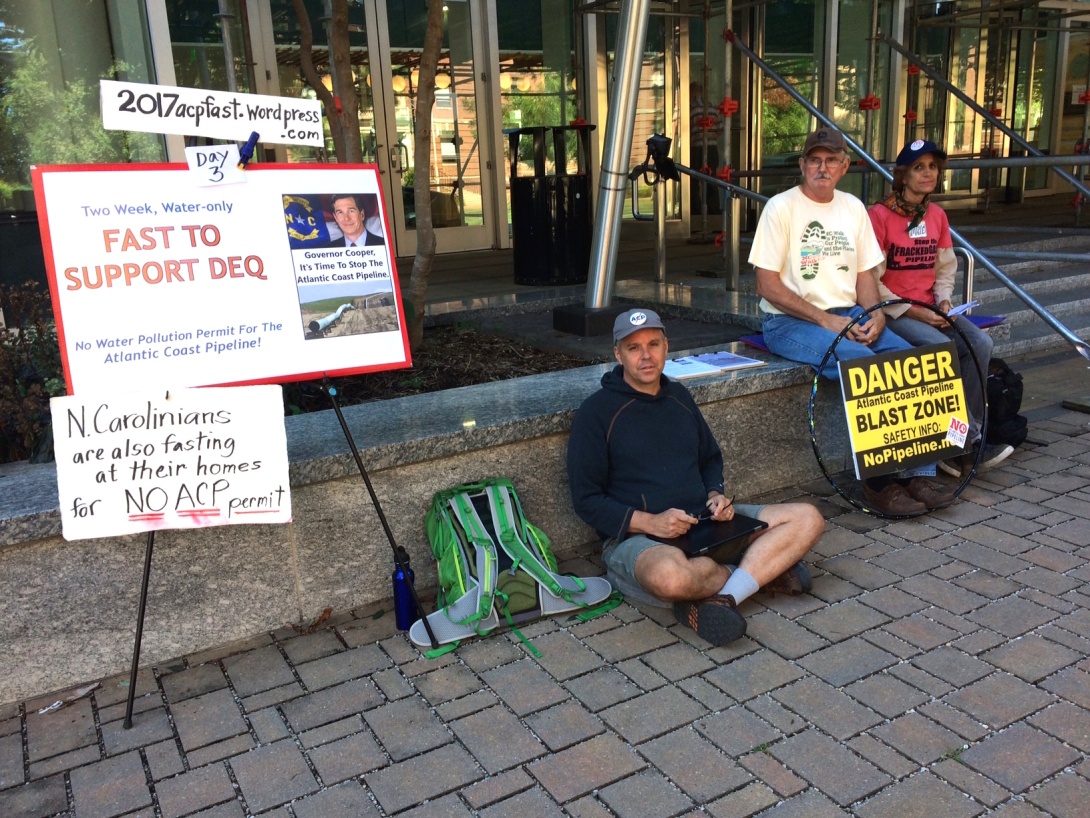INSTITUTE INDEX: Fighting N.C. Gov. Cooper's 'environmental justice atrocity'

Last fall, opponents of the Atlantic Coast Pipeline held a vigil outside of the N.C. Department of Environmental Quality's headquarters as the agency considered a key water pollution permit for the project. It granted that permit last week, but opponents plan to continue their fight. (Photo by Sue Sturgis/Facing South.)
Date on which the administration of North Carolina Gov. Roy Cooper (D) approved a key water quality permit for his state's portion of the proposed Atlantic Coast Pipeline, which would carry fracked gas from West Virginia: 1/26/2018
At the time the Cooper administration approved the permit, number of additional public hearings environmental advocates were seeking because of the developers' repeated sidestepping of regulators' request for more information: 3
Number of North Carolina waterways that the permit allows the pipeline to cross, creating a significant risk of water pollution: more than 300
Value of a fund to pay for environmental mitigation and clean energy projects that lead developers Dominion and Duke Energy offered to sweeten the deal for North Carolina regulators, with some now questioning the fund's legality: $57.8 million
Of the eight Eastern North Carolina counties the 600-mile-long pipeline would cross, number where the poverty rate exceeds the state's: 7
Where the percentage of the population that's African-American exceeds the percentage of the state's population that's African-American: 7
Factor by which the percentage of Native American people living within a mile of the pipeline's proposed route through North Carolina exceeds the percentage of the state's population that's Native American: 11
Percent of the population that's Native American near the end of the pipeline's official route in Robeson County, North Carolina, though there's been talk of extending it further into South Carolina: 98
Concessions the deal offers to reduce the disproportionate impacts on these low-income communities and communities of color, leading Blue Ridge Environmental Defense League organizer Therese Vick to call the pipeline "one of the biggest environmental atrocities in N.C. history": 0
Number of individuals and organizations that submitted comments detailing the damage the ACP would cause in North Carolina: more than 6,000
Date on which the Alliance to Protect Our People and the Places We Live, a grassroots anti-pipeline group, released an analysis debunking pipeline backers' claims that the project would be a boon to economic development in Eastern North Carolina: 1/23/2018
Minimum number of lawsuits pending against the ACP: 4
Date on which a statewide day of action is planned in North Carolina against the proposed pipeline: 2/2/2018
(Click on figure to go to source.)
Tags
Sue Sturgis
Sue is the former editorial director of Facing South and the Institute for Southern Studies.
